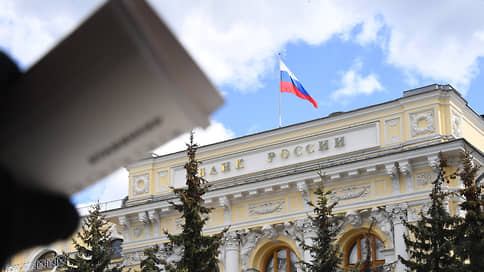The crypt was set in motion – Newspaper Kommersant No. 67 (7512) dated 04/18/2023
[ad_1]

The financial authorities have revealed options for using cryptocurrencies for settlements in foreign economic activity (FEA). Now, in particular, the sphere of activity of authorized companies is being discussed, how they will be serviced, which banks to work with, how much they can interact with foreign economic activity participants. Experts believe that any system with state participation will immediately fall under sanctions, and therefore they are skeptical about the initiative. However, analysts assess the beginning of the movement to create infrastructure positively.
The Bank of Russia, within the framework of the experimental legal regime (EPR), does not exclude the admission of private companies to the cryptocurrency exchange market for participants in foreign economic activity, Deputy Chairman of the Central Bank Alexei Guznov said on April 17 in the State Duma. At the first stage, according to him, it should be a company with state participation.
As Mr. Guznov explained to Interfax, there is now a discussion with the government on the scope of work of authorized companies, how they will be serviced and in which banks, how much they will be able to interact with structures that are engaged in foreign trade activities. The deputy chairman of the Central Bank clarified that the experiment “involves the development of certain hypotheses about what we would like to see.”
In early April, Anatoly Aksakov, head of the State Duma Committee on the Financial Market, said that the bill on the legalization of international payments in cryptocurrencies within the framework of the EPR “was stuck due to disputes over responsibility for the illegal use of digital currencies.”
He now stated that “if there are risks to the financial system, then obviously the experiment will be stopped” (quoted from TASS). At the same time, the deputy does not yet see serious risks, while some foreign partners are ready to “accept cryptocurrency as payment for goods and services sent to Russian partners.”
Mr. Aksakov explained that the law will define a number of requirements for cryptocurrency acceptance points, organizations that work with them, and also determine the time frame for the experiment.
Market participants are still skeptical about the ideas of the authorities, although they note “a general positive shift.” In the Russian Federation, they are finally starting to create an information infrastructure for the circulation of digital currency, Andrey Tugarin, managing partner at GMT Legal, emphasizes. It is precisely because of its absence, according to the expert, that “all accounts and cryptocurrencies of Russian citizens are located outside the country.”
Now it will be possible to use cryptocurrencies in international settlements, although only for certain companies, “probably with state participation,” notes Dmitry Machikhin, CEO and founder of BitOK. In his opinion, the experiment will be closed and the market is unlikely to know “what will actually happen there, how these payments will work.”
At the same time, the head of InDeFi Smart Bank Sergey Mendeleev believes that at the moment there is “not only a project in the first approximation, there is not even a somewhat sane concept of what is supposed to be done.”
In addition, according to Mr. Mendeleev, the use of state structures in this context looks strange, since “no one will even need to prove that with their help someone bypasses anti-Russian sanctions.” Any such state-owned company, the expert is sure, will simply be included in the next package of sanctions “on the fact of creation.” “The crypt passing through it will also go there, since the West has learned to analyze clusters very well, while the best we can offer in response is the Begemotik system (designed to search and analyze data from connected sources.— “b”) from Gruop-IB,” emphasizes Mr. Mendeleev.
As a result, “two parallel realities will be formed: an already working mechanism in the gray zone and an experimental mechanism with official approval, which still needs to be awaited,” Mr. Machikhin believes. At the same time, he clarified, from companies that continue to use “crypto in international settlements in the gray zone, there will be nothing positive for the state – no taxes, deductions, commissions.”
[ad_2]
Source link





